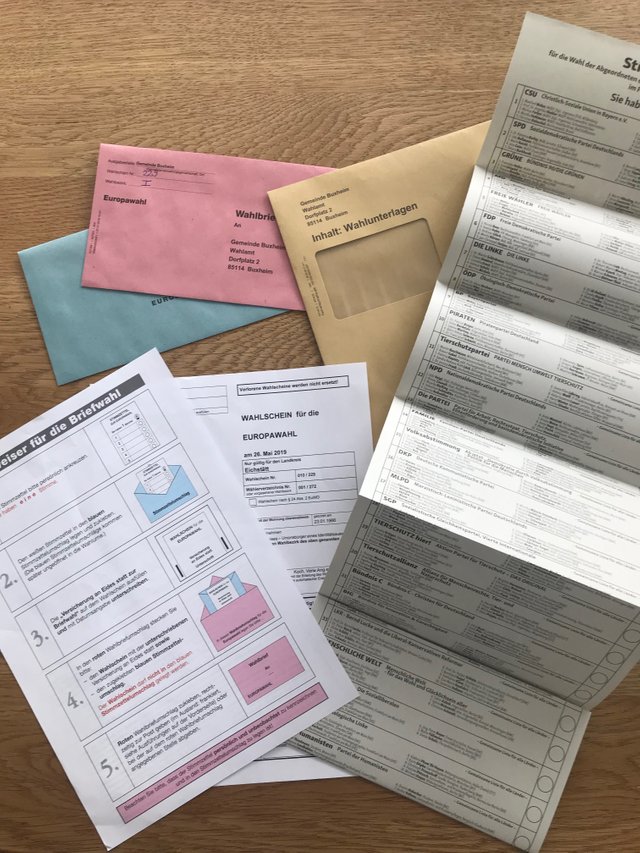When thinking about life in the 21st century, we see digitalization in every aspect of our daily routine. As the European elections take place right now, I got a letter from my responsible community. I had two options – either going to a poll station in my town on a designated date or I could order the postal ballot documents. Just like at the first elections in ancient Rome, the action of doing an election has not changed at all. The only innovation is to poll from home, which a lot of people use nowadays. As I used the “innovative” way and signed up for a postal election, I wondered whether all this effort is necessary?

What is the Pain Point?
Since I am a dutiful citizen, the question for me was not whether I should vote or not. But since the process of voting is really time consuming, many people will decide against voting.
One step in the right direction was made my introducing the postal ballot documents.
Especially old people who cannot leave the house and young people who are not at home very often, take advantage of this offer. So, I decided to order the postal ballot documents. When I was home on the weekend, I opened the election-envelop where 6 different pages where waiting for me. The instruction explained the correct procedure and after informing myself which party I am interested in, I set one tick. All this effort for only ONE tick.
How could this Pain Point be reduced or eliminated in a blockchain-world?
To reduce time expenditure, paper consumption and effort, there must be an easier option to vote in the 21st century – the answer is: Digital voting via blockchain technology.
Via Blockchain, we can reduce all those pain points while fixing the two most crucial factors of voting.
Results should not be falsified or altered.
One major argument to not execute elections through the internet is the fear of hacker attacks. Through blockchain, transacted votes cannot be changed once they are in the chain.Every user should have his or her unique but anonymous identity.
This is the tricky part. As elections have to be anonymous, the “normal” system of Blockchain transactions – where every user has a retracable ID, cannot be applied. Rather, the government has to allocate random IDs which cannot be retraced.
Another positive aspect is, that the vote count can be automated and is way more faster than doing it by numerous of election workers. By this, especially in countries where governments are bribed, elections can no longer be falsified.
If those factors are taken care of, nothing should stand in the way to take elections in the 21st century to the next level.
Thank you for reading my post! #LifeWithBlockchain
Special thanks to Pascal Mehrwald (@pascalmehrwald), Benjamin Pabst von Ohain (@benpvo), and Prof. Dr. Isabell M. Welpe for offering a course on blockchain at the TUM and inspiration for all the ideas.
Who doesn't know people not voting because they "don't have the time" to do so? And now imagine you can do it while enjoying your breakfast, starting in the day with a good feeling as you already fulfilled your civil duty!
Great and promising approach, even if implementation might be a huge effort.
Downvoting a post can decrease pending rewards and make it less visible. Common reasons:
Submit